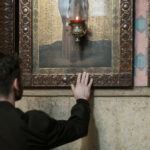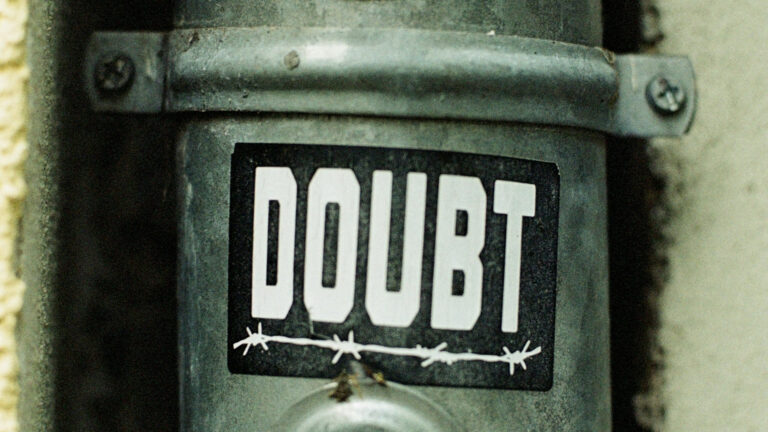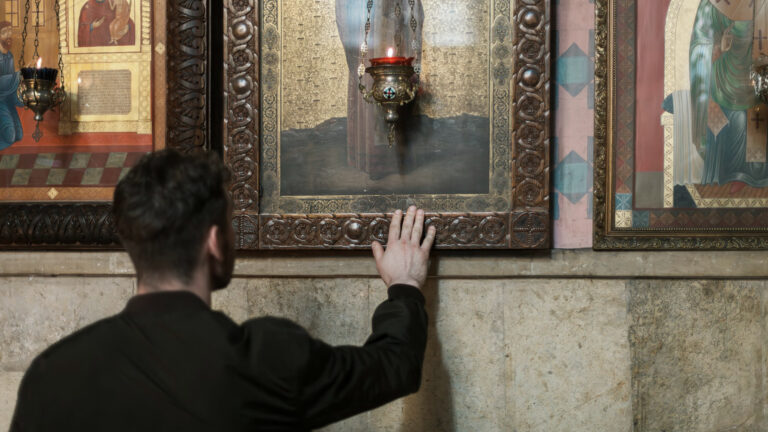Paul’s letters to the Corinthians never cease to amaze me. This church—riddled with sin and division, doctrinal deviations, sexual immorality, and class distinctions that resulted in some getting drunk at the Lord’s table—is still addressed by the apostle as saints. These Christians Paul described as “carnal” he also described as the body of Christ, the holy people of God.
The Carnal Church Today
When we look at the church today, who can deny the institutional pride, the corruption, the rot on display in so many Christian organizations and ministries?
Who can’t help but shudder at the church’s apathy toward sound doctrine? At the flagrant abuses of power? At the twisting of core Christian teaching into a license for exploitation and mistreatment?
Who does not weep at the way churches all over the political spectrum instrumentalize the gospel for earthly ends, hustling for proximity to power among quickly passing politicians, eager to trade our prophetic power for partisan porridge?
We see the fallout from these failures all around us. Books, articles, podcasts, and groups focus on the church’s shortcomings, and rightly so.
Seeing these sins and excesses, many people recoil against them and conclude the only solution is deconstruction—leaving Christianity and the church altogether or else redefining the church as as a different kind of institution, a social club for spiritual people rather than an institution with spiritual authority. In these cases, the agendas that arise go far beyond the rooting out of sinfulness to wholesale changes in core Christian teachings. Other visions of reform would hollow out the inside of the church until a congregation becomes little more than a social or political committee with a religious veneer.
More Radical Deconstruction
I take heart when reading Paul’s words to the Corinthians because his letters remind me that the church is ever and always in a state of warfare against sin and Satan. Just as the individual must crucify the flesh and live according to the Spirit, so also must the church. We are redeemed but not yet glorified, saved but not yet perfected.
Those of us who mourn the complicity of the church in manifest evil must differentiate between a kind of deconstruction that tears down a building and celebrates the rubble and the kind that strips away the moldy walls and floors until we find again the foundational truths that are common to Christians everywhere and through time.
The problem with many reform efforts today is not that their proposals are too radical; it’s that they’re not radical enough. Radical means returning to the root, getting back to what the Christian faith is all about, the core of Christianity that helps us differentiate the rotting branches from the trunk of the tree.
Church renewal requires a more radical deconstruction. Renewal requires us to reject every worldly agenda that would use the church’s fiascos as an excuse for altering the church’s foundation. Renewal points us back to the source of truth so that we are shaped anew by Scripture. Renewal leads us through this contemporary moment, with roots that go deep, as people who see our faith not as an accessory to the life we’re already determined to live, but as a precious and profound treasure we’re determined to pass on.
The God We Confess
Strip away sin and excess and man-made tradition and cultural assumptions, and you arrive, trembling, before the triune God: the Father, Son, and Holy Spirit. The what of Christianity is a Who. We are not a political action committee. We are not a fill-up station for people seeking vague spirituality. We are neither a club designed for inspiration nor a class delivering information. We are people who confess the Name.
We are his family, the household of God, a holy nation, the commonwealth of heaven, exiles and sojourners, his little flock, the first fruits of new creation, the fellowship of the justified, people of the Word who follow his Way.
Love the Church
We will not have the courage and patience to do the deep work of reform in the days ahead unless we are filled with love for the bride of Christ. One must love something before seeking to renew it.
If you find it hard to believe in the goodness of the church because of so many high-profile scandals, consider instead the beautiful manifestations of holiness you see in the people closest to you—people whose names will never grace the history books but who have been faithful in Bible reading, in praying, in passing on the faith to the next generation. Look not at the prominent, but the plodding pastors, whose names most of us will never know, but who demonstrate faithfulness in a thousand little ways, the ones who never shock the world with surprising scandal, but go unnoticed to their graves having displayed the quiet marks of enduring love and faithfulness. These too make up the church.
Because I say love precedes renewal, some might accuse me of turning a blind eye to the church’s offenses, as if I want to sweep under the rug the real and tragic injustices perpetrated by God’s people in the name of Jesus. It’s true that love can become an excuse for sin. Love can blind us to faults. But without love, do we have eyes to see goodness? Without love, can we truly see beauty? If love may at times blind us to faults, a lack of love can blind us to goodness.
Rightly understood, love doesn’t oppose reform but is its prerequisite. As G. K. Chesterton pointed out more than a century ago, you must love something enough to commit to the hard work of seeing it reformed and renewed. Paul called out the Corinthians while calling them “saints,” and “brothers and sisters.” His passion for reform came from his passion for God’s people.
So, look at the church with grief, yes. Mourn the flaws. Lament the evils. Reestablish your commitment to rooting out the reasons for such shame. But don’t let your lament for the church ever lose the wonder of love.
If you would like my future articles sent to your email, as well as a curated list of books, podcasts, and helpful links I find online, enter your address.

















